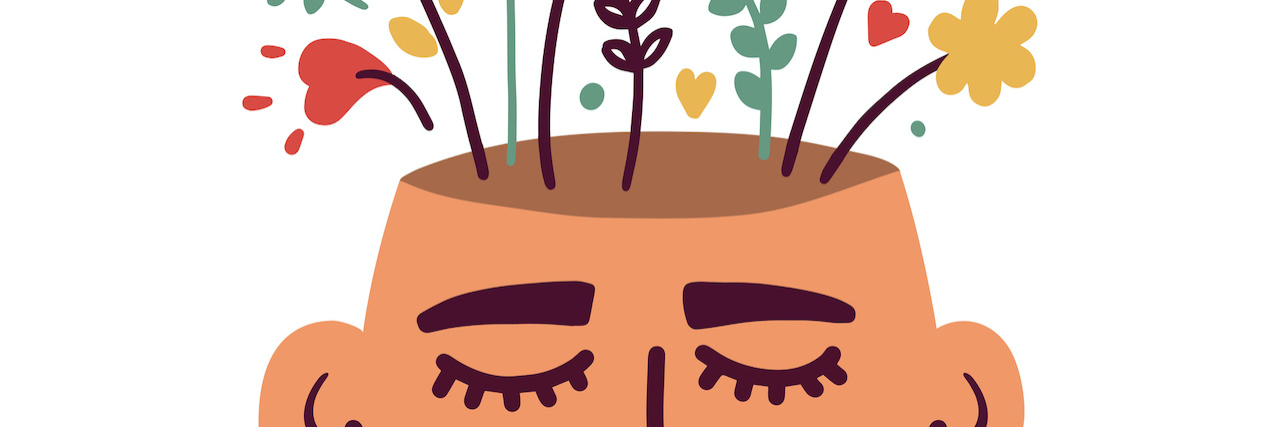Please Stop Scapegoating Those Living With a Mental Illness
With all the online bickering and arguing as of late, I’ve noticed a disturbing trend. It’s become so commonplace, I see something nearly every day that truly rubs me the wrong way. It is the “scapegoating” of those living with a mental illness in social media. And it is not something that is only being done by “one side” of the political divide, it is actually rampant on both sides.
• What is Bipolar disorder?
Some examples I’ve recently seen are:
- Referring to those who are “racist” as “mentally ill.”
- Calling either political party “mentally ill” because their beliefs are in opposition to yours.
- Stating that someone is “mentally ill” because the are unwilling to take the vaccine to prevent COVID-19.
- Responding to an article about an individual who committed a violent act as “mentally ill.”
- Referring to those who are members of extremist groups as “mentally ill.”
This list goes on and on. Many of the above examples “scapegoat” those living with a mental illness by generalizing an entire group of diverse individuals by affixing the label, “mentally ill,” in a context that is dehumanizing and demeaning to those who truly struggle. As someone who has lived with a mental illness for nearly 32 years, this obviously is upsetting to me. And, it also increases the stigma surrounding mental health.
For those of us actually living with a mental illness, we realize that our diagnosis, disability or condition does not define us. When you collectively refer to any group of people as “mentally ill,” you are devaluing this population by stereotyping and generalizing a group of over 51 million adults (roughly 20% of the US population) who come from all walks of life, socioeconomic backgrounds, educational levels, etc.
As someone who lives and struggles with bipolar 1, PTSD, OCD and ADHD, I get tired of seeing “mental illness” used as the catch-all and “go-to” phrase as the rational for everything wrong with humanity. When humans behave in harmful ways, a mental illness is not always to blame. Hatred and the type of ideologies that lead to violence or discrimination stems from learned behavior. Fear as well as a lack of education and exposure to others and novel ideas can also lead individuals to act in “irrational” or hateful ways.
It is crucial to understand that living with an actual psychiatric disorder causes the individual who is struggling to experience limitations and symptoms that are disruptive to his or her life. This could take form in a number of ways including difficulty with employment, relationships and even basic self-care. Some struggle more than others and each individual’s experience is unique.
Many people who live with degrees of racism/homophobia/misogyny etc. actually do not experience any limitations in their day to day functioning and they are still able to function with little to no problems. So, acting in a violent way, espousing racist ideas, etc. may not mean you actually would fit into the criteria of having an established psychiatric diagnosis. On the converse, many of those who live with a mental illness might struggle in a variety of ways, but are caring and empathetic individuals who have never been violent and are competent members of society who contribute both at work and in their respective communities. This includes people from all walks of life: pastors, nurses, teachers, etc.
Often, because of the stigma attached to mental illness, individuals do not always disclose their struggle. Thus, when I see so many people use the term “mentally ill” to describe a violent or racist individual, etc. it is harmful to me and others who are working to debunk the myths surrounding mental health and decrease stigma.
I actually spend a lot of time online educating others. Sometimes, I have been pleasantly surprised to receive an apology when I explain to an individual who has just equated racism with mental illness that their words are damaging to the mental health community.
Those of us living with a psychiatric disorder are like anyone else. We want to be seen for who we are. I live with a mental illness. I also am educated and hold an MS degree. I have never harmed anyone, nor have I ever been violent. When you take the word “mentally ill” and equate it with something truly negative, it is harmful to people like myself.
I hope this helps people to understand that changing what words we use actually matters, even when it is something as trivial as a comment on a Facebook or Twitter post. Words are powerful. They matter. Please respect them and use them responsibly.
I hope one day I see a lot less scapegoating and stigmatization of those living with mental illlnesses. It does make me more hesitant to openly discuss my psychiatric disability for fear that people will assume “the worst” about me. And this causes some individuals to not seek treatment because they don’t want to be identified as someone with a psychiatric disorder.
I am just like you. I am just another person journeying along in life, trying my best to improve, grow and learn. Next time someone scapegoats an entire population of people, please remember me. There are millions more of me in this country and we want to be seen for who we are, not diminished to a label in a demeaning and disrespectful way!
Thanks for reading. I just felt this was something I needed to express, not only for myself, but for the many others who also might feel dismayed and discouraged by being scapegoated. Let’s lift each other up and see the best in all of us!
Getty image via Olga Strelnikova

